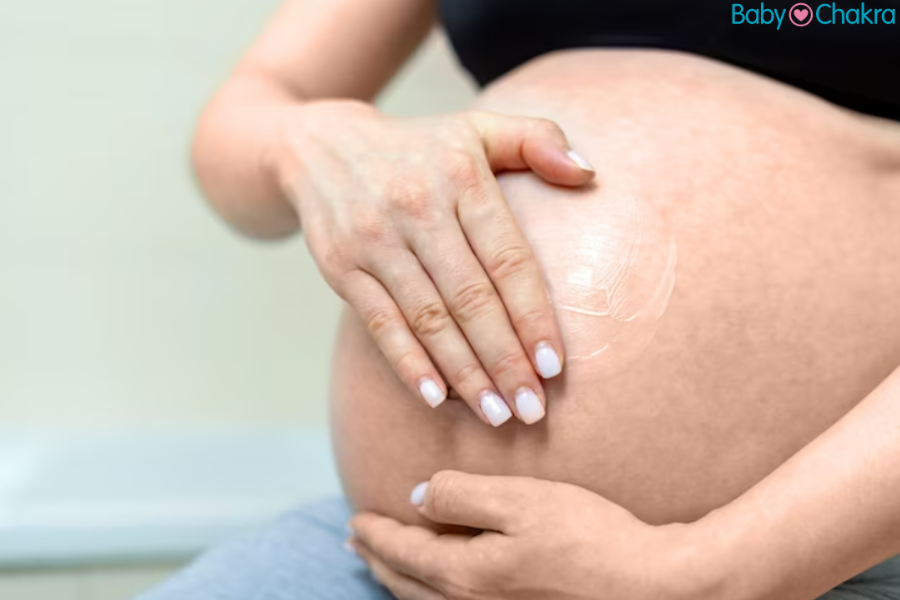
Pregnancy With Endometriosis: What You Need To Know
9 Mar 2023 | 4 min Read
Manisha Pradhan
Author | 1053 Articles
Pregnancy with endometriosis is a medical condition in which the tissue that normally lines the inside of the uterus, known as the endometrium, grows outside of the uterus, often on the ovaries, fallopian tubes, and pelvic lining.
Pregnancy can be a natural remedy for endometriosis in some cases, as pregnancy reduces the production of estrogen, a hormone that contributes to the growth of endometrial tissue.
During pregnancy, the placenta produces progesterone, a hormone that supports the growth of the fetus and can also help alleviate endometriosis symptoms. Additionally, pregnancy can give the endometrial tissue time to heal, as the tissue is not shed during menstruation.
Read on to know more about pregnancy with endometriosis.
What You Should Know About Pregnancy With Endometriosis
Getting pregnant with endometriosis
Getting pregnant with endometriosis can be challenging due to the potential damage to the fallopian tubes and ovaries caused by the growth of endometrial tissue. Endometriosis can also lead to the formation of scar tissue, known as adhesions, which can further interfere with fertility.
However, many women with endometriosis are able to conceive and carry a pregnancy to term with the help of fertility treatments or other interventions.
Fertility treatments for endometriosis
Fertility treatments, such as in vitro fertilization (IVF), can help women with endometriosis conceive. IVF involves fertilizing eggs in a laboratory and then transferring the embryos to the uterus.
This bypasses the fallopian tubes, which can be affected by endometriosis, and increases the chances of a successful pregnancy. Other fertility treatments, such as intrauterine insemination (IUI) and ovulation induction, may also be used to help women with endometriosis conceive.
Postpartum care for women with endometriosis
After childbirth, women with endometriosis may experience a recurrence of symptoms as their hormones return to pre-pregnancy levels and the endometrial tissue begins to grow again. It is important for women with endometriosis to continue working with their healthcare provider to manage symptoms and prevent further complications. In some cases, women may need to resume medical or surgical treatments for endometriosis after childbirth.
Breastfeeding and endometriosis
Breastfeeding can also have a positive impact on endometriosis symptoms, as it suppresses the production of estrogen, which can contribute to the growth of endometrial tissue. Women with endometriosis may consider breastfeeding as a natural way to manage their symptoms and support their overall health.
Symptoms Of Pregnancy With Endometriosis
While pregnancy can alleviate endometriosis symptoms in some women, others may experience symptoms during pregnancy with endometriosis. Pain and discomfort may occur as the uterus expands and puts pressure on surrounding organs, and hormonal changes can cause mood swings and other symptoms of pregnancy with endometriosis such as:
- Pelvic pain: This is the most common symptom of pregnancy with endometriosis. The pain can range from mild to severe and may be felt in the lower abdomen, back, and/or pelvis. It may be present during menstruation, ovulation, or at other times during the menstrual cycle.
- Pain during sex: Endometriosis can cause pain during or after sex, particularly in positions that put pressure on the affected areas.
- Fatigue: Some women with endometriosis experience fatigue or exhaustion, especially during their period.
- Gastrointestinal symptoms: Endometriosis can cause bowel problems such as diarrhoea, constipation, bloating, or nausea, particularly during periods.
- Painful urination or bowel movements: Endometriosis can cause pain during urination or bowel movements, particularly during periods.
Additionally, women with endometriosis may be at increased risk for certain complications during pregnancy, such as preterm labour and delivery, miscarriage, and cesarean delivery.
Regular prenatal care and monitoring can help identify and address potential complications early on.
Pregnancy with endometriosis can be challenging, but with the right care and support, women with endometriosis can have healthy pregnancies.
Take a look at some natural skin care products that are safe to use during pregnancy.
Also Read:
Check Out 7 These Easy DIY Pregnancy-Safe Skincare Recipes: A must try for glowing skin
Cover image source: freepik
A


Related Topics for you
Suggestions offered by doctors on BabyChakra are of advisory nature i.e., for educational and informational purposes only. Content posted on, created for, or compiled by BabyChakra is not intended or designed to replace your doctor's independent judgment about any symptom, condition, or the appropriateness or risks of a procedure or treatment for a given person.


